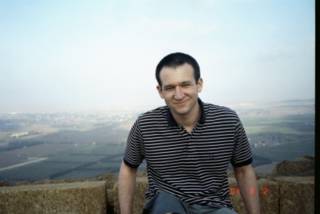Bollinger Part III: Teaching and Scholarship
I served as the co-chairman of the Student Advisory Committee on the Evaluation of Teachers (or was it Teaching? I can never remember.) while I was a student at Vassar College. Our mandate was fairly limited; we served as a student voice in the tenure process, reviewing student evaluations and making recommendations to the faculty tenure committee based on that review, noting what we perceived to be the strengths and weaknesses of each candidate.
University teaching is a strange animal. At the elementary and high school levels, we have testing for teachers to evaluate their ability to manage a classroom, their knowledge of subject matter, and so on. Most elementary and high school teachers student teach and are mentored in some way. University teachers usually student teach as graduate students, but there appears to be little effort to ensure they are actually good teachers in addition to being good scholars.
Lee Bollinger claimed that the system of faculty committee and tenure was of the highest integrity. That's a big stretch. No system is perfect, but the tenure system is fraught with structural problems. One question that arises is what the priorities of these committees should be. For the students, it is necessarily teaching, because that is what makes up the bulk of student evaluation questions - the organization of the course, the ability of the professor to convey knowledge, the accessibility of the professor, and so on. For the faculty, it seems to be scholarship. My experience, anecdotal though it may be, suggests that while a faculty member who is an awful teacher may survive at a university because of the volume of that professor's scholarly output, a great teacher who is less widely regarded as a scholar may be turned down. This happened at Vassar numerous times; we would see a professor with good student evaluations not promoted or not given tenure.
The integrity of this process is certainly not beyond question. When department hire professors for the first time, or place a teacher in a tenure track position, nepotism can play a nefarious role. The music department at Vassar was responsible for an egregious example of this when I was a senior, giving a teacher whose classroom manner could be desribed as lackadaisical at best a tenure-tack position because of personal ties members of the department had to that person and the person's husband.
And since Bollinger believes that faculty should police themselves, there is an obvious problem with faculty hiring and tenure committees, some of whom are overwhelmingly liberal, and a few of whom are overwhelmingly conservative, hiring and promoting like-minded candidates. This appears to be what goes on in certain departments, and only the most naive would come to believe that professors who are political activists outside the classroom, particularly those who claim victimhood and decry the unpopularity of their views in the greater society, would not act to add those who agree with them to their departments. The same problems apply to publishing; most academic journals are run by professors, who may tilt the table in favor of those academics who think like those professors. It is another reason why the faculty cannot properly police themselves and another reason why professors who are hardcore political activists should be examined closely by these committees.
But I said university teaching was a strange animal, and the reason I say so is because the teachers student enjoy the most are often the worst teachers. Student have academic freedom, but they are not scholars, and they are not at an age where balance and moderation are virtues. For young people, action is the virtue, and students are forever ready to give themselves to those professors who lend them a cause for their righteous indignation, not an old fogie who is constantly saying, "On the other hand . . ." It is rare to find the kind of professor who can do both - convey knowledge in a balanced AND passionate way.
It is hard to think of a good solution to the problems of the tenure process. Administrators should not be making these decisions. But the priorities need to be rejiggered, and hirings should be more rigorously reviewed by faculty deans for conflicts of interest based on the personal relationships hiring committee members have with candidates, and the prospective ability of candidates to teach in a balanced and passionate way in the classroom. There might be some sense in separating evaluations of a candidate's teaching ability from a candidate's scholarly ability; there should be a structured way in which students and faculty members alike can evaluate a candidate's ability to teach, not just the candidate's ability to get published.
I imagine I'll have more to say on this matter in the future.

